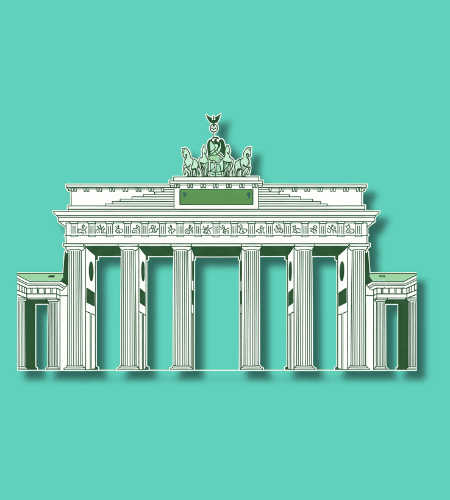National Unity Day (Tag der Deutschen Einheit) is Germany’s national holiday, celebrated every year on October 3. It commemorates the reunification of East and West Germany in 1990, when the former German Democratic Republic (East Germany) officially joined the Federal Republic of Germany under the Basic Law, bringing to an end 45 years of division.
History of National Unity Day
After the end of World War II, Germany was divided into zones of occupation, which ultimately resulted in two separate German states: the Federal Republic of Germany (West Germany) and the German Democratic Republic (East Germany) in 1949. This division was both physical (border, Berlin Wall) and political, economic, and ideological, as Germany became a frontline of the Cold War between East and West.
On 3 October 1990, the “Unification Treaty” came into force, and East Germany was formally incorporated into the Federal Republic. That date was chosen to mark the reunification, as an earlier candidate date — 9 November, the day the Berlin Wall fell in 1989 — was considered problematic because it coincides with darker events in German history, such as Kristallnacht.
Since 1990, 3 October has thus been observed as Germany’s national holiday, replacing the previous “German Unity Day” held on 17 June in West Germany to mark the East‑German uprising of 1953.
Table of Contents
Why is National Unity Day important?
National Unity Day is much more than a commemoration of political events; it marks a moment when Germany consciously chose peace, democracy, and reconciliation after decades of separation. It reminds people how societies divided by walls — literal and ideological — can come back together through negotiation, law, and civil courage. It underscores that unity is not inevitable but must be built through effort, shared values, and respect.
Also, it gives Germans an annual opportunity to reflect on their identity: what “Germany” means when one considers its diverse regions, histories, dialects, and memories—East vs West, urban vs rural, etc. Unity Day both celebrates what has been achieved since reunification and serves as a moment to remember the challenges: economic disparities, social integration, political divisions. It keeps alive the awareness that unity is not just a one‑time event but an ongoing process.
Some of the deep significance people often speak about
- that it’s a reminder of peaceful change and how citizens can shape history
- the value of reconciliation, forgiveness, and working through past divisions
- understanding that national identity can adapt and grow when people are open to inclusion
- recognizing that economic, political, and cultural differences remained after 1990, and that addressing them is part of being united
- the importance of democratic institutions and the rule of law in bringing about and sustaining unity
How to Observe National Unity Day
On 3 October each year, Germans observe the day as a public holiday, with various official and popular celebrations. There is typically a major “citizens’ festival” (Bürgerfest) in a host city, chosen among the federal states in rotation, with speeches, performances, music, food, and cultural displays. In Berlin, large celebrations happen around the Reichstag and through central symbolic places like the Brandenburg Gate and Straße des 17. Juni.
People often use the day to fly flags, to attend public concerts or ceremonies, to meet with friends and family, or reflect on the meaning of unity through exhibitions or media programs. Schools and educational institutions may hold special lessons or lectures. Some people also use the time to think about current challenges — social, economic or political — that still divide people even within a unified country.
Ideas for observing National Unity Day
- attend the public festival in your city or a nearby host city if you can, to feel the communal spirit
- fly the German flag or display it respectfully to show national pride
- visit a museum or an exhibition about German history or reunification to better understand what the day means
- spend time talking with people from East or West backgrounds, hearing their stories of life before and after reunification
- use the day to think or talk about what unity means today: what still separates people, and how those gaps might be bridged
National Unity Day Dates Table
| Year | Date | Day |
|---|---|---|
| 2026 | October 3 | Saturday |
| 2027 | October 3 | Sunday |
| 2028 | October 3 | Tuesday |
| 2029 | October 3 | Wednesday |
| 2030 | October 3 | Thursday |
Subscribe to our newsletter and never miss a holiday again!

